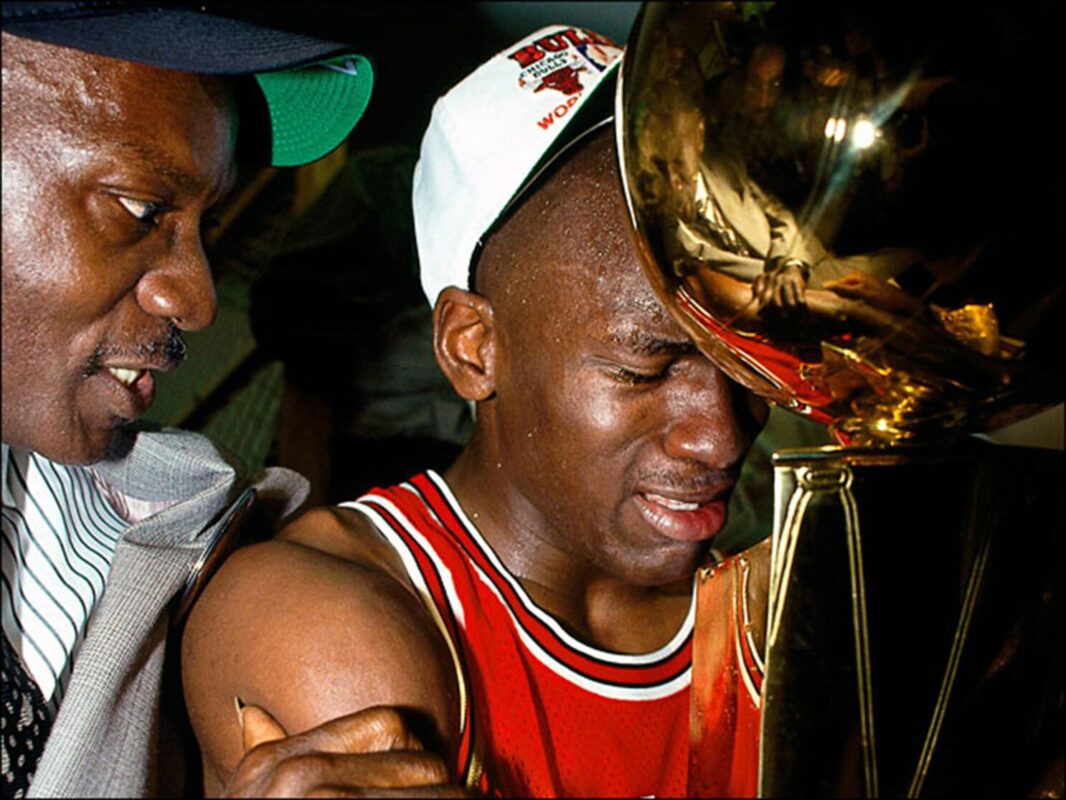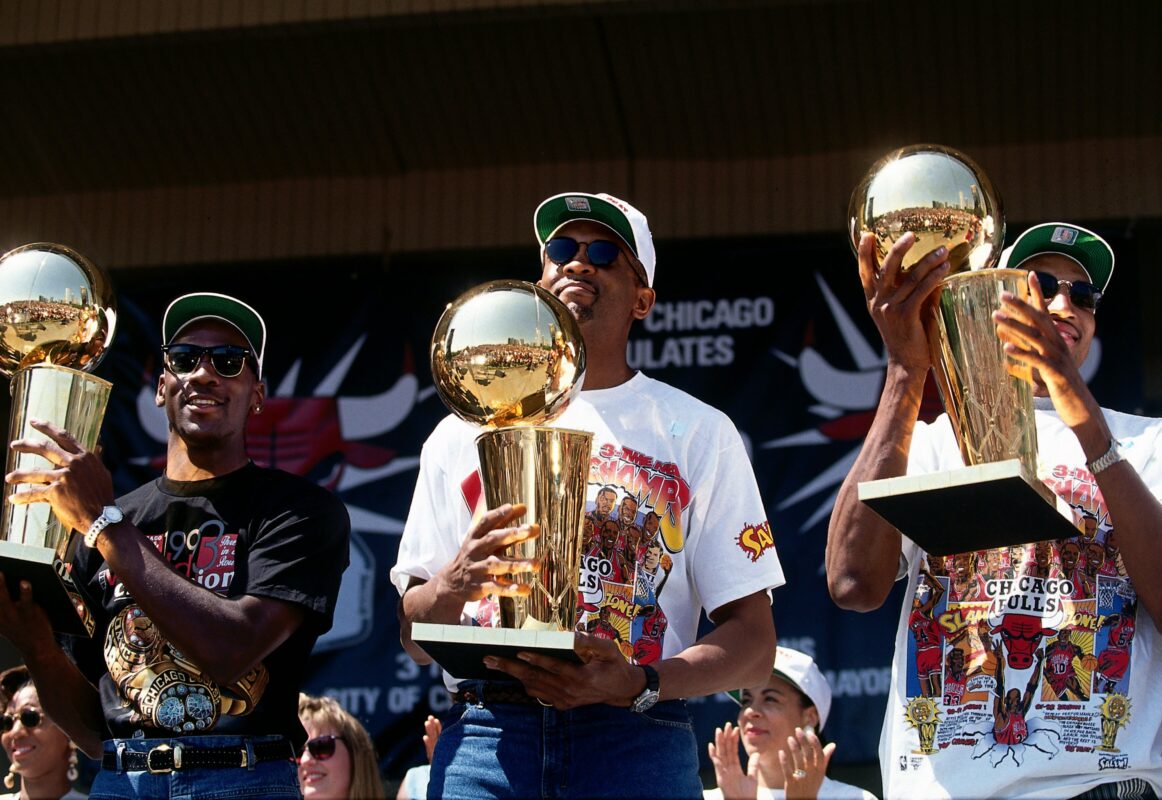SPORT & LIFESTYLE NEWS
How Many Rings Does Chicago Bulls Have? A Look at Their Championship History
The Chicago Bulls are one of the most iconic franchises in NBA history. Known for their dominance in the 1990s, they’ve earned a special place in the hearts of basketball fans around the world. But How Many Rings Does Chicago Bulls Have? Find the answer with AlibayTrendy Store in the article below now.
How Many Rings Does Chicago Bulls Have?
The Chicago Bulls have secured a total of 6 NBA Championships, all of which were achieved during their legendary run in the 1990s. This era is often referred to as one of the most dominant periods in the history of professional basketball, thanks to the leadership of the team’s star player, Michael Jordan, and their brilliant head coach, Phil Jackson. Together, Jordan and Jackson transformed the Bulls into a basketball dynasty, combining Jordan’s unparalleled skills and determination with Jackson’s innovative coaching techniques. This partnership not only brought the team success on the court but also solidified their place as one of the most successful franchises in NBA history. For those asking, How Many Rings Does Chicago Bulls Have? The answer is six. Each championship added to the Bulls’ legacy, cementing their reputation as a powerhouse throughout the decade and influencing the sport for generations to come.
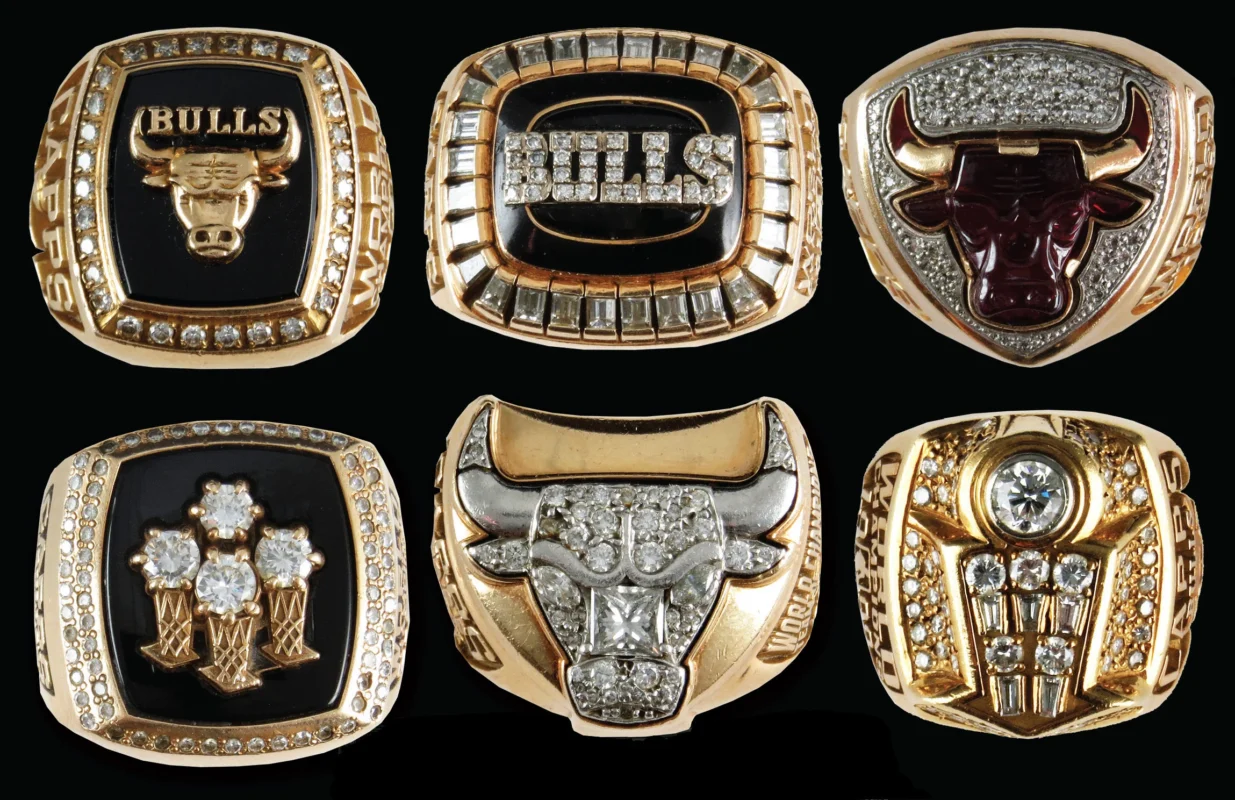
The Six Rings of the Chicago Bulls
The Bulls’ championships came in two three-peat eras:
First Three-Peat (1991-1993):
The Chicago Bulls’ journey to becoming an NBA powerhouse began in 1991, when they captured their first-ever NBA Championship. In the NBA Finals, the Bulls faced off against the storied Los Angeles Lakers, led by Magic Johnson. This victory marked the beginning of the Bulls’ dominance in the 1990s, and it was the moment when Michael Jordan, with the support of Scottie Pippen, began to solidify his status as the greatest basketball player of all time. The Bulls defeated the Lakers in five games, and Jordan earned his first Finals MVP award, as he dazzled fans with his athleticism, leadership, and clutch performances. This championship victory symbolized a shift in the NBA landscape, with the Bulls emerging as the new team to beat. For those wondering, How Many Rings Does Chicago Bulls Have? at this point? The answer is one, with more to come.
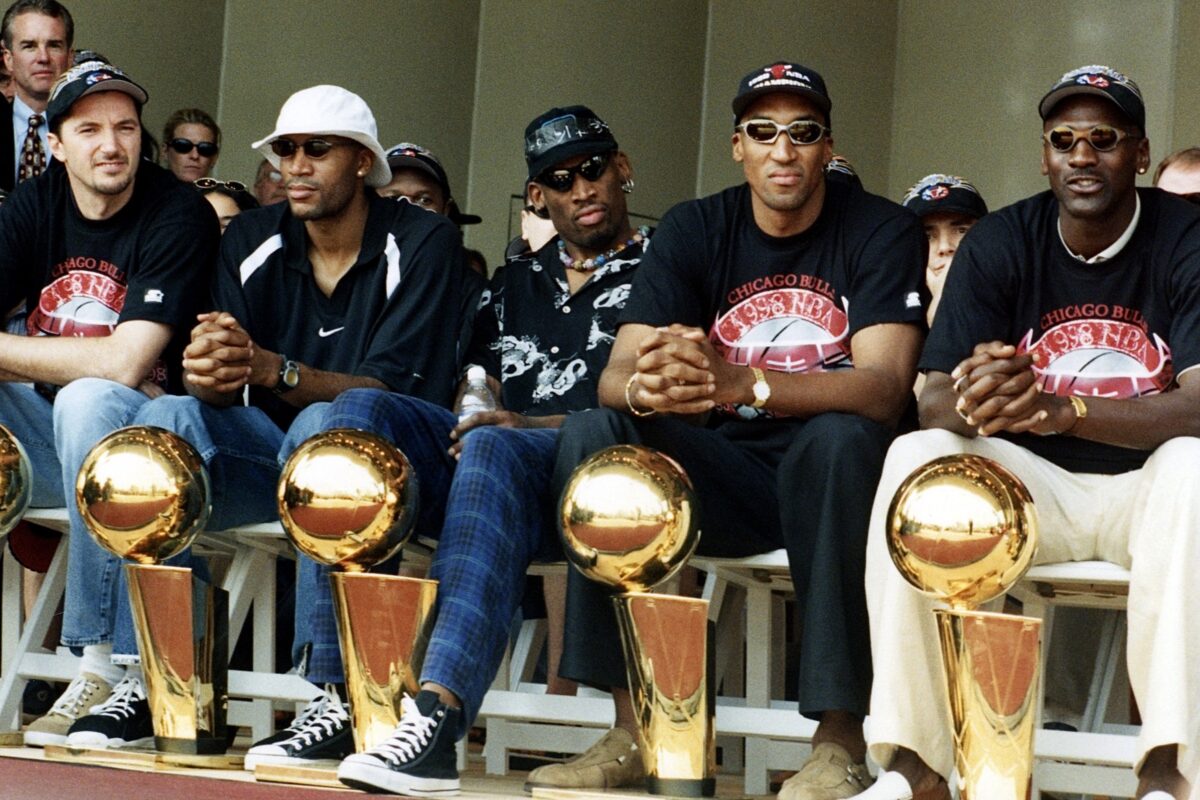
Building on their success, the Bulls returned to the NBA Finals in 1992, this time facing the Portland Trail Blazers, led by Clyde Drexler. The series showcased another brilliant performance from Michael Jordan, who outshone Drexler, his rival at the shooting guard position. In Game 1, Jordan famously sank six three-pointers in the first half, a performance now known as the “Shrug Game” after he casually shrugged to the crowd in disbelief. The Bulls went on to win the series in six games, securing their second consecutive NBA title. How Many Rings Does Chicago Bulls Have? The tally is two, with more dominance ahead.
The following year, in 1993, the Bulls were on the verge of completing an incredible feat: winning three championships in a row, also known as a “three-peat.” This time, they faced off against Charles Barkley and the Phoenix Suns. Barkley had won the NBA MVP that season, but it was Jordan who once again proved to be unstoppable. The Finals were highly competitive, but the Bulls managed to close out the series in six games, with John Paxson hitting a memorable three-point shot in Game 6 to seal the victory. With this third consecutive championship, the Chicago Bulls had firmly established themselves as a dynasty, with Michael Jordan winning his third straight Finals MVP award. So, How Many Rings Does Chicago Bulls Have by 1993? The answer is three.
Second Three-Peat (1996-1998):
After the 1993 championship, Michael Jordan shocked the world by announcing his retirement from basketball. He briefly pursued a career in professional baseball, but by 1995, he was back on the basketball court, returning to the Chicago Bulls. With Jordan back in action, the Bulls wasted no time reclaiming their place atop the NBA. In 1996, the Bulls had one of the most dominant seasons in NBA history, finishing with a 72-10 regular-season record, the best at that time. In the NBA Finals, they faced the Seattle SuperSonics, led by Gary Payton and Shawn Kemp. Despite the Sonics’ strong defense, the Bulls emerged victorious in six games, earning their fourth NBA Championship. Michael Jordan, once again, was named Finals MVP, and his emotional reaction after the win, as he lay on the locker room floor clutching the championship trophy, became an iconic image. By now, the question How Many Rings Does Chicago Bulls Have? was being asked frequently, and the answer was four.
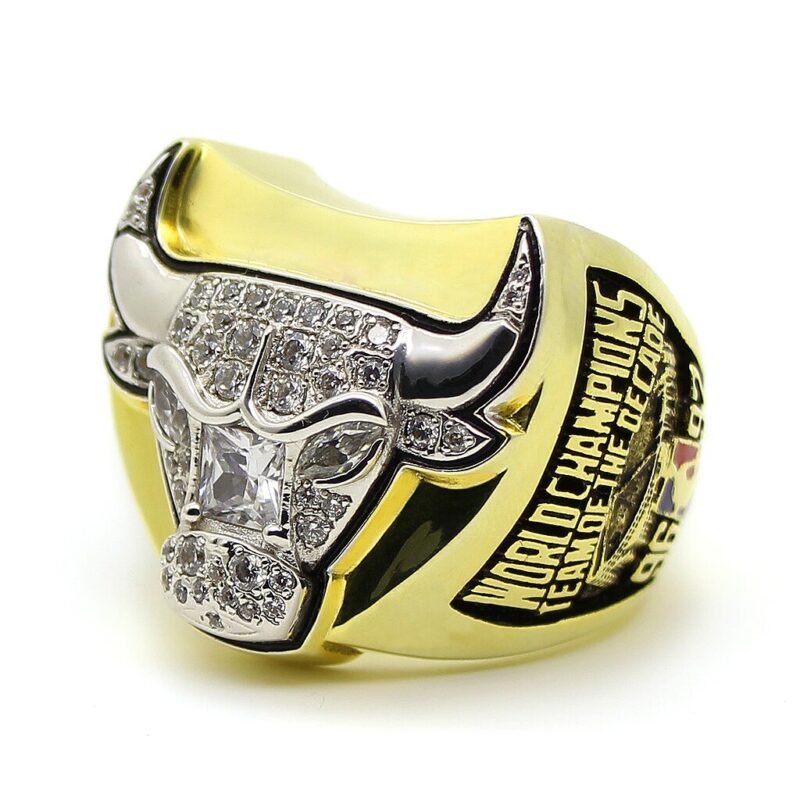
The Bulls continued their dominance in 1997, returning to the NBA Finals for a rematch against the Utah Jazz, led by Karl Malone and John Stockton. The series featured some of the most memorable moments in NBA history, including Jordan’s “Flu Game” in Game 5, where he played through illness and delivered a heroic performance, scoring 38 points to lead the Bulls to a crucial victory. The Bulls went on to win the series in six games, capturing their fifth NBA Championship. Jordan’s Finals MVP streak continued as he won his fifth award, further cementing his legacy. How many rings does Chicago Bulls have after this? The count had risen to five.
In 1998, Michael Jordan and the Bulls were chasing their sixth and final NBA Championship. Once again, they faced the Utah Jazz in the NBA Finals. The series was hard-fought, but the defining moment came in Game 6, when Jordan delivered one of the most iconic plays in NBA history. With the Bulls trailing by one point in the final seconds, Jordan stole the ball from Karl Malone and then calmly dribbled down the court, hitting a game-winning jump shot over Bryon Russell to clinch the championship. The Bulls won their sixth NBA title, and Jordan earned his sixth Finals MVP award. So, for those asking, how many rings does Chicago Bulls have after their final championship in 1998? The answer is six—an incredible legacy that still stands today.
This incredible run of six championships in eight years remains one of the most remarkable achievements in the history of professional sports.

